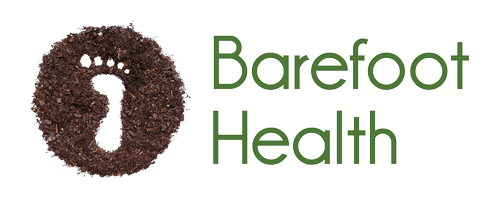Gut Health is a Lifestyle
Gut health is often shrunk down to a probiotic, special drink or exotic vegetable, but it goes so much deeper with this.
To address dysfunction at the gut, we need to address all elements of our health; nutrition, movement, circadian rhythm, and yes, often supplementation.
And while it’s true that diet plays a large role in the health of our gut, our lifestyle plays a much larger role, and should be looked at in how we view and manage our microbiome.
As an Functional Diagnostic Nutrition Practitioner, I run and interpret lab tests that measure the parasites, bacteria, fungi and overall health of the GI tract. From here we can decide what foods and supplements might be beneficial for the state of the gut. And while these fancy tests can be exceptionally handy pinpointing your nutrition, it can often lead to an over emphasis on allopathy and ignores the more important factors of gut health. And while there’s a place for antibiotics and herbal supplements, it’s often by addressing our lifestyle that we make true inroads with our health.
Some other factors to consider when addressing gut health are:
Sunlight:
Digestion is highly dependent on circadian rhythm, and we best digest food in the hours when the sun is up… Many people find eating too close to bed time causes an upset stomach. Exposure to UV light causes greater diversity in the microbiome, so much so that gut researchers Bosman et al. coined the term gut/skin axis, and recommended that sun exposure “could be used to promote intestinal homeostasis and health.”
Nature:
We know that nature is healing, but the extent is often undervalued. Exposure to nature (fresh air, sunshine, contact with other animals, soil quality) has all been linked to greater microbiome diversity and resilience. Tasmin et al. (2017) regards soil biodiversity degradation and lack of exposure to the natural environment as being a public health threat, and recommends that children should have exposure to microbe rich environments, including exposure to animals.
Connection:
Many of us have felt this punch through lockdown, because it turns out that loneliness is pretty horrible. It shouldn’t take a study or experiment to work out that human connection is vitally important for our health, but sadly we often don’t trust something until we stick it in a test tube so here goes.
It turns out that a lack of human connection has a significant impact on our microbiome, from the moment that we’re in utero to the type contact we have with others - those who have intimate contact with others share microcrobes and have more diverse gut bacteria. Further, feelings of isolation promote inflammatory mechanisms (IL-6, CRP and Interferon), all of which lead to hampered digestive health.
Human connection matters… Who’d have thought?!
Movement:
Exercise is one of the more underappreciated areas of gut health, as the research about it’s effects on the microbiome are only just developing. Regular exercise has powerful anti inflammatory potential, and this effect is seen in the gut. Further, exercise has been shown to increase butyrate (gut protective) and decrease LPS (gut destructive) (Ridaura et al. 2013).
Summary:
So while it’s tempting to focus on the things we can grab at, often the best things for our health are widely available and usually free. Sleep, connection, mindfulness and exposure to nature is available to us every day, and is often the most powerful medicine of all.
References:
Bosman et al. (2019) Skin Exposure to Narrow Band Ultraviolet (UVB) Light Modulates the Human Intestinal Microbiome. https://www.ncbi.nlm.nih.gov/pmc/articles/PMC6821880/
Gilbert et al. (2018) Current understanding of the human microbiome. https://www.ncbi.nlm.nih.gov/pmc/articles/PMC7043356/
Monda et al. (2017) Exercise Modifies the Gut Microbiota with Positive Health Effects. https://www.ncbi.nlm.nih.gov/pmc/articles/PMC5357536/
Ridaura et al. (2013) Cultured gut microbiota from twins discordant for obesity modulate adiposity and metabolic phenotypes in mice. https://www.ncbi.nlm.nih.gov/pmc/articles/PMC3829625/
Tasnim et al. (2017) Linking the Gut Microbial Ecosystem with the Environment: Does Gut Health Depend on Where We Live? https://www.ncbi.nlm.nih.gov/pmc/articles/PMC5635058/



